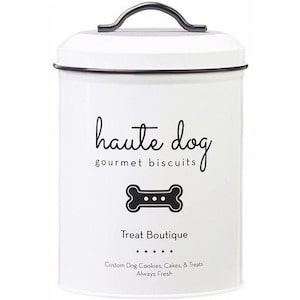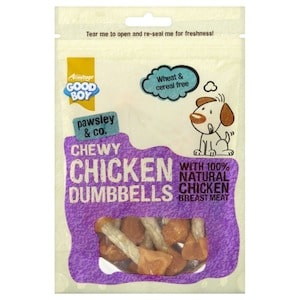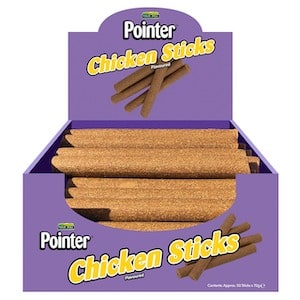Biscuits are a popular snack and many people begin their day by having a snack full of them. In addition, many individuals prefer having digestive biscuits for health benefits. Digestive biscuits are semi-sweet biscuits that are often used with tea or coffee. But, Can dogs eat digestive biscuits? or even the regular biscuits? or They are bad for their health? Let’s see.
You Might Also Like:
Can Dogs Eat Digestive Biscuits?
Yes, dogs can eat digestive biscuits. They can help improve your furry friend’s digestive system. But, you have to pick a proper brand of digestive biscuits. Selecting a random pack of digestive biscuits can cause different health issues for your dog. They may contain some artificial components, sweeteners or preservatives which are toxic for the dog.
If the biscuit is made of chocolate or is in a mix of ingredients, your furry friend will suffer from a fatal disease. So, it’s crucial to check the ingredients before getting them from the stores.
While feeding your dog with a couple of digestive biscuits won’t have any negative effect if they develop a habit and it becomes a necessity, then it’s a concern. It’s not a substitute for a balanced diet but, only an occasional treat. So, to understand this better, let’s get into the details of the digestive biscuits.
Digestive Biscuits
The digestive biscuits originated in Scotland in the 19th century. These semi-sweet biscuits are made of wholemeal flour, sugar, and butter. They are taken as a snack with tea or coffee and they are tagged as digestive because they help improve digestion.
The flour in these biscuits constitutes roughly 55% of the total content. Ingredients such as peanut butter, oil, and fat cover 7%, pumpkin 14%, honey about 4%, and eggs and other nutrients account for 6%. In addition, turmeric which adds inflammatory properties and colour to the biscuits constitutes less than 1%. These biscuits also have roughly 1% presence of baking soda, salt, and black pepper.
The turmeric present in these biscuits is in less proportion but, helps in dealing with arthritis, skin, and other health issues.
Perks of offering digestive biscuits to dogs
The fibre content in these biscuits is high for the dog but, if you manage the quantity you serve, there are some noticeable perks.

- A tasty treat – digestive biscuits are quite good in taste. Your furry friend will enjoy the crisp and crunchy flavour of these biscuits.
- Not toxic – there is no harmful content present in the digestive biscuits. They are simply made using flour, butter, honey or sugar.
- Useful as a reward – you can certainly use them as positive reinforcement after training your dog. This will help them feel good but, because they retain high fibre content, make sure you use them in less quantity.
- Improves digestion – the high fibre content in these biscuits is responsible for issues such as diarrhoea. But, if you serve them less, they can also help improve digestion. The digestive biscuits contain prebiotics that grows healthy bacteria in your furry friend’s gut.
So, these were some perks of offering digestive biscuits to dogs. Yes, you’ll have to manage the intake, but, it’s crucial. Here are some of the reasons explaining why:
- The digestive biscuits are not nutritionally balanced. Overconsumption of digestive biscuits may cause nutritional imbalance. The excessive amount will also lead to health issues such as diarrhoea, bloating or constipation.
- The sugar or honey portion in the biscuit is not high but, still can make the dog obese if fed in large amounts. So, under no circumstances, a dog who is already suffering from diabetes should get these biscuits in any form.
- Dogs with diabetes cannot have the digestive biscuits but, the ones having allergy issues or different underlying medical conditions must also not get any digestive biscuit treats. Because it can worsen their existing condition. For instance, an obese dog will gain more weight because of the sugar in the biscuit.
If you want to occasionally treat your dog with biscuits, consider looking into some of the best dog biscuits uk has to offer.
Homemade Recipe For Serving Digestive Biscuits
You saw the potential health hazards of serving digestive biscuits to the dogs. If you are using a commercial food pack the chances of a dog getting sick are more. Thus, it’s best to avoid such packages. You can try using a homemade recipe for preparing these biscuits for serving them to your pooch.

Ingredients: wheat flour, vegetable oil or butter, honey or sugar, baking soda, salt, peanut butter, pureed pumpkin egg, black pepper, and turmeric.
Quantity
- Wheat Flour – 2 cups
- Vegetable oil – 1/4 cup
- Sugar – 2 tablespoons
- Baking Soda – 1 tablespoon
- Salt – a pinch
- Peanut butter – 1/4 cup
- Pureed pumpkin – 1/2 cup
- Egg – 1
- Black pepper – a pinch
- Turmeric – 1/4 teaspoon
The recipe
Once you are done arranging the ingredients, preheat the oven and follow this instruction for making the digestive biscuits:
- Take a bowl and mix the flour, vegetable oil, egg, sugar, salt, and baking soda in it. Once these ingredients blend, use the other ingredients such as turmeric, pepper, pureed pumpkin and peanut butter. Whisk the mix properly and make sure it gets smoother.
- Form a 1/4 inch dough by stirring the mix. Afterwards, cut this dough into smaller pieces.
- Take the pieces and put them into the baking sheet. Bake these pieces for about 20 minutes or until they get crisp and golden.
- Once baked, allow the pieces to cool down.
You can store these biscuits in a container and use them when needed. Now, it’s important for you to understand that even though it’s a homemade digestive biscuit, you need to ensure you don’t add any seasonings.
Further, you can also change the recipe according to your dog’s health and preferences. Here are some of the suggestions you can consider:
- Adjust the quantity of sugar as per your dog’s health. If they have pre-existing conditions, you can choose not to add them to the mix.
- Use wheat flour that is safe for dogs. Oat flour, coconut flour, or brown flour are known to be safe. Using different flour may require changing the amount of liquid you use in the mix.
- If your furry friend is allergic to eggs, remove them from the list of ingredients. You can add more liquid to make the dough soft.
- Use oil that is safe for dogs. Fax oil, coconut oil, and olive oil are safe to use. In addition, if you’re using solid butter, you can try using melted butter.
- Use peanut butter that doesn’t contain any added sugar or xylitol. You can also consider using cashew or almond butter.
- If you can, use fresh pumpkin i.e. cooked and mashed instead of pureed pumpkin. Still, if you are using pureed pumpkins, make sure there are no added spices or sugar in them.
Alternatives of digestive biscuit for dogs
Regardless of the type of digestive biscuits, i.e. homemade or commercial, if your furry friend has an underlying condition or you are simply not comfortable with the idea of feeding them the digestive biscuits, you should consider different alternatives. There are ample alternatives for the digestive biscuits that you can use. Here are some of them:
- Graham crackers
Graham crackers are considered good alternatives because they have low fat and sugar content. The texture and taste are somewhat similar to that of a digestive biscuit. According to USDA, the ingredient distribution for 1 Graham cracker (14g) is – 1.4 g of fat and 3.7 g of sugar. Whereas, the digestive biscuit (15 g) has, 3.1 g of fat, and 2.5 g of sugar.
Further, they are made using wheat flour which is better than refined flour. Still, these crackers retain high amounts of carbohydrates and fat so, it’s best to serve them in less quantity.
- Hob nobs
Are oat-based biscuits and are good alternatives for digestive biscuits only if fed in fewer amounts. Because they contain high fibre, protein content, and some healthy fat from oats. Hob nobs also retain sugar so, you must ensure you don’t end up feeding more than usual.
- Pie crust
Pie crust is a pastry dough that is used in making pies. The dough is made using wheat flour, salt, butter and some water. This mix is low in sugar but, retains high-fat content. So, a pie crust also needs to be served in small amounts, as an occasional treat. Because along with the high-fat proportion, they also contain some additives or preservatives which only provides a strong reason why you must serve them in moderation.
- Shortbread
This biscuit is made of butter, flour, and sugar. It is buttery in flavour and has a crumbly texture. However, shortbread contains high amounts of calories and fats. Yes, it’s a tasty treat for the dog but, you should only feed these biscuits rarely and that too in small amounts.
- Biscuits made with ground nuts
This alternative is basically a homemade treat recipe. If you form the biscuits using this recipe in a suitable manner they are easily digestible in comparison with the ones bought from the stores. You can use different types of dog-safe biscuits and mix them with nuts that are safe for them to eat.
Use ground nuts such as peanuts or almonds and mix them with oatmeal cookies or rice crackers. Nuts are healthy but, they also include high amounts of salt and calories. So, use unsalted nuts, especially the macadamia nuts.
- Peanut butter
Made of roasted peanuts, this is one of the favourite treats of the dog. It provides healthy fats and protein to the dog but, you must use a natural one. Using the commercial pack may cause severe health issues as they may include toxic additives such as Xylitol. You can use the peanut butter as an extra element in the daily meal of your dog for adding a different flavour but, in small quantity.
- Yoghurt
If you use plain yoghurt that doesn’t retain xylitol or sugar, your furry friend can get some noteworthy benefits. The yoghurt is rich in calcium and protein and can help with digestion. It also helps to boost immunity as it provides probiotics. So, if you add this in a small portion with the mix of your furry friend’s food treat, this can turn out to be a good alternative.
Some owners wonder if dogs can have the occasional treat of ice cream, but can dogs eat ice cream?
Biscuits that are not good for dogs but, are still being fed:
- Oreos
While you may have seen some dog owners feed their dogs some Oreos, you must try not to do the same. Because they may not contain any toxic substance that may harm your furry friend but, these chocolate sandwich cookies are high in fat, sugar and calories. So, a dog is likely to suffer from obesity, diabetes or other health issues if they eat Oreos.
In addition, these biscuits have a slight presence of artificial flavours and colours such as vanillin and titanium dioxide. These additives can cause allergic reactions and some dogs are intolerant of such flavours. They may face health issues such as vomiting, itching or diarrhoea. This aspect majorly relies on the sensitivity of an individual dog but, to ensure your furry friend’s health you must avoid these cookies.
- Gingernuts
Gingernuts are a spicy and crunchy treat. They can help dogs improve digestion and deal with issues such as nausea. However, this aspect is only partially true. There is very little research that supports this premise. In addition, gingernuts also have sugar and other ingredients which are not good for the dog, especially if they have a sensitive stomach.
FAQs
What will happen if a dog eats a chocolate digestive biscuit?
If your dog eats a chocolate digestive biscuit, it will face some severe health issues. You will see the dog vomit frequently and it may even have some blood in it. In addition, the dog is also likely to show symptoms of diarrhoea, restlessness, muscle tension, hyperactivity, incoordination, elevated heart rate and seizures. The amount of chocolate ingested will indicate whether your furry friend is suffering from chocolate poisoning or not.
Is it OK to give a dog a digestive biscuit daily?
Giving a dog digestive biscuit is not bad but, if you offer them on a daily basis, it will cause issues. As a responsible dog owner, you need to manage the quantity and ensure that your dog doesn’t develop the habit or think that it’s part of its regular diet. Serving them as an occasional treat will help avoid any issues and may even help in improving their digestion.
Are digestive biscuits really safe for dogs?
Digestive biscuits are not toxic for dogs but, they are not that healthy as well. They retain sugar and salt content which can harm dogs’ health. In the beginning, if a dog eats this biscuit it will not show any signs of discomfort but, if it transforms into a habit, the excessive amount can easily upset the stomach and cause issues like constipation and diarrhoea. The distress is inevitable if the dog is fed commercial digestive biscuits.
Are human biscuits safe for dogs?
Human biscuits are safe for dogs but, only if it’s a rare treat. Offering dogs human biscuits may cause some serious health issues because many of these biscuits have chocolate or additives such as xylitol. These ingredients can compromise a dog’s health. Also, some dogs are allergic to wheat or grains and offering them human biscuits will only make their health worse. You may have to choose grain-free or wheat biscuits for them.
Can Dogs Eat Digestive Biscuits – Final Take
Human biscuits are a big no, and digestive biscuits are to be served in moderation. As a dog owner, it’s crucial for you to keep these aspects in mind and not get carried away with your instincts of feeding them these biscuits regularly.
Further, if you are offering digestive biscuits to your furry friend, make sure that it’s an occasional treat. Because if they develop a habit of having it in their regular diet, they may face some health issues. There are no significant health benefits so, serve a couple of pieces once a month.
Some owners also feed their dogs ginger nut biscuits thinking they help with digestion. But there’s little evidence supporting this and you may wonder, can dogs eat ginger nut biscuits or will they cause issues?






